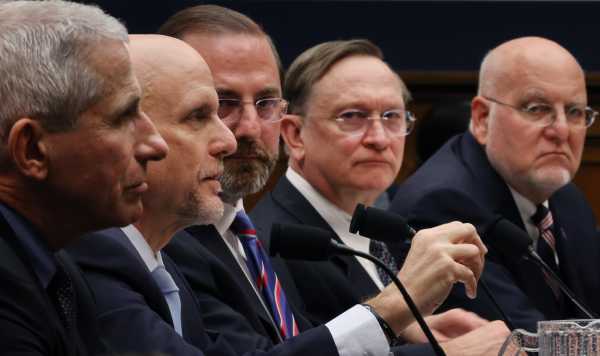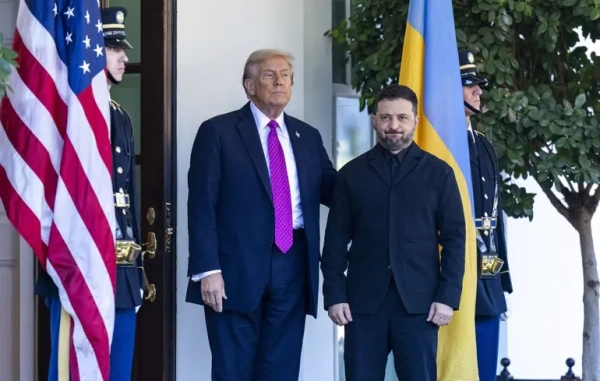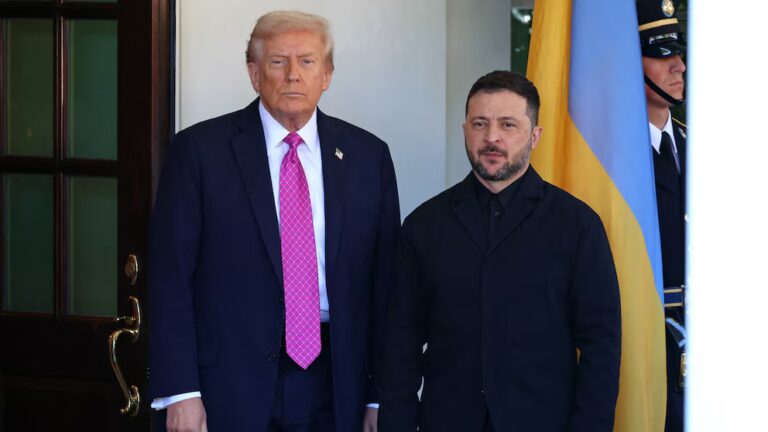
Three top US health officials will self-quarantine for two weeks after coming in contact with people at the White House who tested positive for the coronavirus.
Dr. Anthony Fauci, the director of the National Institute of Allergy and Infectious Diseases and member of the federal coronavirus task force, said Saturday he will be entering a “modified quarantine” after a “low risk” contact with a White House aide who tested positive for the virus.
Fauci told CNN he was not in close contact with the person who tested positive, but as a precaution will work remotely and wear a mask for the next 14 days. Fauci said he does plan to go to the White House or Capitol Hill — wearing a mask and socially distancing — if asked to. He will get tested every day, and may also go into his office at the National Institutes of Health, where he says he’d be the only person around.
Dr. Robert Redfield, director of the Centers for Disease Control and Prevention, and Dr. Stephen Hahn, commissioner of the Food and Drug Administration, will also be in self-quarantine for the next two weeks. Politico reported that Hahn came in contact with Vice President Mike Pence’s press secretary, Katie Miller, who tested positive for the virus on Friday. Redfield was also exposed to someone at the White House, though officials have not said who.
Fauci, Redfield, and Hahn were all slated to testify at a Senate hearing on the virus Tuesday. Redfield and Hahn will now testify via video, while Fauci is expected to attend in person while wearing a mask.
None of the top health officials have tested positive, but their exposure is the latest indication in recent days that even the White House — despite its rigorous testing standards — may not be safe from the virus.
White House staff who have regular contact with top officials have tested positive for coronavirus
Fauci, Redfield, and Hahn aren’t alone in having had contact with infected people: Trump and other top officials may have had multiple brushes with the coronavirus recently.
The first of two recent scares came Thursday, when a military valet to the president tested positive. Valets are often quite close to the president and his family, providing food and accompanying them on travel, though Trump told CNN he had “very little contact” with the man before he tested positive.
The next day, Pence’s spokesperson Miller tested positive. Miller regularly attends meetings of the White House task force, which includes Fauci, Redfield, and Hahn, as well as a number of other top officials such as Health and Human Services Secretary Alex Azar and Dr. Deborah Birx, the task force coordinator. She’s also married to Stephen Miller, senior adviser to Trump.
Trump, Pence, and multiple top aides are now tested for the virus every day — as are any guests who come in contact with the president or vice president. Other officials who don’t have regular contact with the president himself, like those who only interact with White House aides, are tested less often.
Neither Trump nor Pence wears a mask regularly or during public appearances — Trump appeared maskless at a plant manufacturing N95 masks in Arizona this week, and Pence recently apologized after not wearing a mask at the Mayo Clinic in Minnesota. Both have argued they do not need to wear masks because all those they come into contact with have been tested — tests, however, are not always accurate.
Concerns that even the White House testing regime has not kept US leaders from exposure have led some to worry about communities without the sort of testing capabilities that caught Miller’s infection, which are likely to find themselves in a dangerous situation as states begin to reopen nonessential businesses.
“In the span of hours, the coronavirus task force was likely exposed, the vice president was definitely exposed, and a top health official can’t come into the office,” one senior administration official told Politico. “It’s a textbook case of why we can’t rush to re-open.”
White House Chief of Staff Mark Meadows said Friday the administration had added safety measures in the West Wing in the two days prior. “I can tell you this is probably the safest place that you can come to,” he said.
But not every business has the means to institute similar safety protocols, and when one of the seemingly most secure places in the country is still vulnerable to infection, it doesn’t bode well for businesses eager to reopen their doors.
As Juliette Kayyem, a former assistant secretary of homeland security under President Barack Obama, told the New York Times: “Whether it’s contained [at the White House] or not, we will know soon enough. But the fact that a place — secured, with access to the best means to mitigate harm — is not able to stop the virus has the potential of undermining confidence in any capacity to defeat it.”
Support Vox’s explanatory journalism
Every day at Vox, we aim to answer your most important questions and provide you, and our audience around the world, with information that has the power to save lives. Our mission has never been more vital than it is in this moment: to empower you through understanding. Vox’s work is reaching more people than ever, but our distinctive brand of explanatory journalism takes resources — particularly during a pandemic and an economic downturn. Your financial contribution will not constitute a donation, but it will enable our staff to continue to offer free articles, videos, and podcasts at the quality and volume that this moment requires. Please consider making a contribution to Vox today.
Sourse: vox.com






